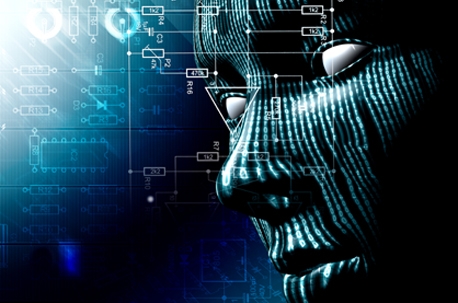OPINION20 May 2015
All MRS websites use cookies to help us improve our services. Any data collected is anonymised. If you continue using this site without accepting cookies you may experience some performance issues. Read about our cookies here.

OPINION20 May 2015
How will the rise of artificial intelligence affect the market research industry asks Dr Bob Cook.
There seems to be a lot about intelligent robots and artificial intelligence out there at the moment – though it may just be the circles that I frequent and the company that I keep. The excellent film Ex Machina certainly painted a dark picture of the consequences of developing intelligent and sentient machines – as well as making people wonder whether it was normal to fancy a robot.
Apart from the entertainment side of the conversation about artificial intelligence (AI), the subject and its impact are explored in a fascinating new book by the Scottish writer John Gray called The Soul of the Marionette. In the book he explores the impact that AI will have on mankind and its role in the world. Ultimately, he argues whole professions will disappear as intelligent computer systems will soon do a better job than humans, and cheaper.
And it’s not just the softer targets like call centre workers and train drivers; indeed, the future would appear to be bleak for jobs considered to require a higher level of intellectual functioning like medical practitioners and lawyers.
So what does the future look like for research and insight professionals in the context of AI? Well, pretty good from where I am sitting. As an industry, we can have a somewhat confused relationship with technology. As technology becomes ever better at recording and storing useful information, there is an interesting debate about whether this ‘big data’ is a good or bad thing.
As a keen fan of logic, I fail to see how the information can be anything other than an opportunity to learn more about the world than we previously knew – perhaps even gain new insight.
Currently we have a problem in that existing methods of data management and search don’t allow us to actually use all this new information. This is where AI will come to the rescue to identify useful content and associations. We have recently been using image recognition algorithms to identify the useful images among tens of thousands that were captured as part of a life-logging project.
The machine was trained to recognise technological devices and bring these to the attention of the researcher – like a good robot. The time saved by doing this was astounding – leaving me free to do something more rewarding with my time than flicking through thousands of photographs.
The down side at the moment is the accuracy of the system we were using – but, when you consider that Facebook’s face recognition algorithm (DeepFace) already claims to be 97.3 % accurate, you can see how useful this kind of technology will be to sort through all of the images that are generated in people’s lives for pleasure, social media or even market research use.
Moving on from there are new systems that can recognise combinations of objects and people as well as gauge the behaviours and emotions involved in a situation. It sounds like that might help to recognise the things that will assist me in answering an ethnographic client brief – or is that the sound of a P45 appearing in my in-box?
Dr Bob Cook is director of innovation and inspiration at Firefish
0 Comments